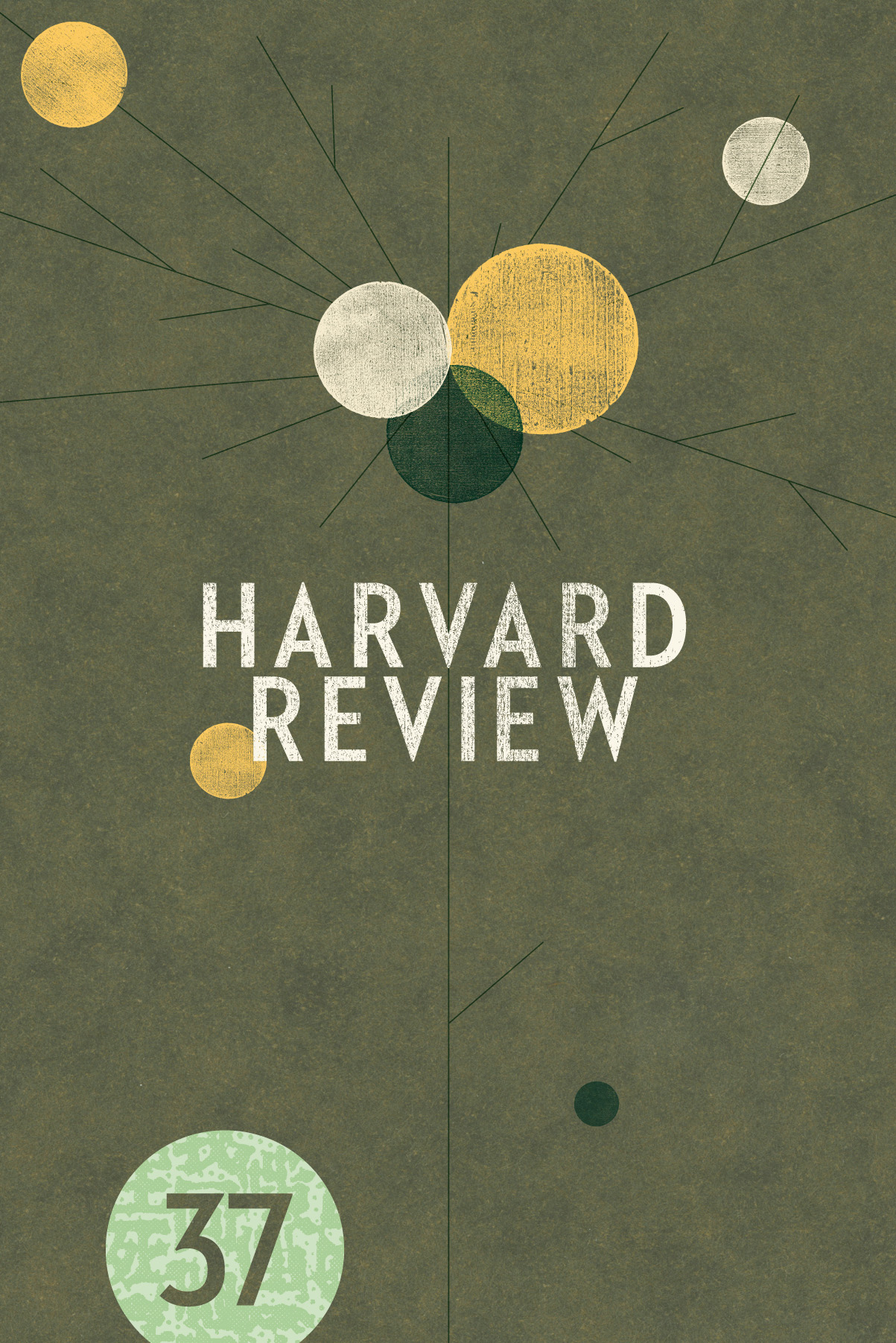HR 37 Editorial
by Christina Thompson
One of my favorite moments as an editor comes when I sit down to assemble the pieces we have collected for an issue of Harvard Review. The problem at this point is no longer one of selection or editing but rather one of sequencing. How do the various poems, stories, essays fit together? What goes—or, even more importantly, does not go—with what? My mother, who was an artist and curator for many years, often used to talk to me about the quality of the installation when we went to art exhibits. “See how this painting makes that one look terrible?” she would say. “Now if they’d only had the sense not to hang them together you would see that they are both quite good.”
The same is true of written collections, though less obviously so since almost no one reads a journal from front to back. But I like to imagine that once in a while a reader will finish a story or poem by someone he or she was already interested in and, glancing across at the opposite page, will catch the tiny joke in the arrangement and be persuaded to read on. I think of these associative links as gestures of appreciation. So, for instance, a poem about cats might follow one about birds, or a drawing of a bone might come at the end of a story about death. It doesn’t always work, of course, there are always pieces that seem unrelated to anything else in the issue. But, by the same token, there are also some that could sit happily almost anywhere in the text.
Take, for example, Craig Morgan Teicher’s poem, “Desire as a Precipitate of Desiring.” When I first started putting these pages together I was tempted to put it next to Patricia Vigderman’s perfect little essay about a boy who, in the intense and focused way of children, “very badly wants to catch a snake.” But then I thought, no, perhaps I’ll put it alongside “The Reincarnation of Horlach Spencer,” Fred McGavran’s wry tale about a financial planner who goes to India, gets himself killed, is reincarnated as a buffalo driver, and spends the rest of the story trying to reconcile two very different notions of fulfillment. Or how about Chris Leslie-Hynan’s tender love story about two teenage girls? Or George H. Rosen’s wistful story about a middle-aged man’s journey to Mexico in search of all the things a middle-aged man might want? Or even Peter Silver’s essay on faked historical sources—a pure embodiment of desire if ever there was one!
Eventually it occurred to me to wonder if there was a single piece of writing in the issue that did not take as its central theme the problem of desire, or indeed if such piece of writing had ever existed—at which point the thought exercise had clearly run its course. But it was fun to work out in this almost mechanical way—as though it were the solution to a practical problem—the astonishing ubiquity of longing.
But speaking of truly practical matters, I want to report on a couple of changes here at Harvard Review. Starting in early 2010 we will begin accepting online submissions through a submission system called Tell It Slant, a link to which will be posted on our website. We will continue to accept paper submissions as long as they continue to come in, but we believe that the opportunity to submit work electronically will be more convenient for both writers and readers, and that the corresponding reduction in paper waste will be good for everyone concerned.
A second change concerns our handling of reviews. Book reviewing is an important part of our mission at Harvard Review, particularly with respect to poetry, which is not as well served by the reviewing community as it might be. But publishing fifteen to twenty newspaper-style reviews at six-month intervals is probably not the best use of our resources, and in the future we plan to publish our book reviews online. This will give us more space for poetry and prose in the printed journal; it will enable us to publish more timely reviews; and it will mean that those that we do publish will be more widely available. Thus the winds of change, which are elsewhere roaring across the landscape, begin to make themselves felt at Harvard Review.
Published on November 10, 2024
First published in Harvard Review 37

